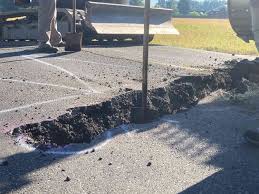 April 2024
April 2024
Short of a structural building or garage collapse visible from the street, it is difficult to identify infrastructure concerns in a condominium community until too late. Repairs, or the lack of them, are operational matters with no information available to the public.
One way to identify trends is to follow information from major urban centres in the United States where more information is available with regard to high-rise and condominium living. These can be advance indications of what to expect in Ontario.
Here is what New York City high-rise communities are preparing for in 2024.
Disclosures on Resale
There are stricter regulations against lead paint. Sellers must disclose if their building has a history of flooding. In Ontario, there is no disclosure of the degree of flooding or water incidents that occur.
Greenhouse Emissions
Buildings 25,000 square feet and higher in The Big Apple need to meet greenhouse gas emissions limits or face escalating fines through 2050. Buildings exceeding their allowable carbon dioxide emissions will face fines.
Ontario has required buildings to report their energy use since 2019. Ontario’s Open Data, a public catalogue of information on energy and water use for large buildings, has been promised but is not yet available. This would allow condo owners to determine how their building performs in energy and water use compared to buildings of similar type. Public visibility of poorly performing buildings is hoped to motivate communities to improve building operations.
 Energy and water costs can account for about half of a condo building’s expenses. Reducing these costs by improving building performance provides financial benefits to all condo owners. Public reporting of this information may encourage condo management to shift their focus from replacing old equipment to running existing equipment more efficiently.
Energy and water costs can account for about half of a condo building’s expenses. Reducing these costs by improving building performance provides financial benefits to all condo owners. Public reporting of this information may encourage condo management to shift their focus from replacing old equipment to running existing equipment more efficiently.
No standards have been established nor fines assessed for failing to meet any standards.
Building Façade Inspections
A façade inspection is required every five years in New York City for buildings over six stories as part of a Façade Inspection & Safety Program. As of 2024, new rules apply.
Façade inspections are undertaken every nine years in Ontario as part of every third reserve fund study conducted. Infrastructure deficiencies are not shared with owners or the public. Evidence of problems may only become noticeable once concrete starts falling on people.
Parking Garages
Buildings in New York City with parking garages are dealing with new and stricter inspection requirements. Based on recent inspections it appears that about 20 percent of building garages have structural deficiencies that require repair. As with building facades, evidence of problems may only become noticeable once concrete starts falling on people or cars.
Insurance Costs Continue to Rise
After insurance premium increases in 2023, more are expected in 2024. Increases are necessary to cover the cost of high insurance claims, and increased cost of labour and materials for repairs. The best way to minimize insurance costs is to keep up with building and building-system repairs. Ensure vendors working in a building have insurance to cover them for mistakes and accidents. Look closely at policies and eliminate coverage that may be unnecessary.
Impact on Condo Budgets and Fees
 Condo budgets will remain under pressure in 2024. Keeping up with necessary maintenance and proactive projects, which does require funding, are the best way to minimize future increases in monthly fees which are expected to increase by around 10 to 15 percent (USA) in 2024 according to Mark Foley, President of Folson Group. With inflation in Canada being higher than in the United States, condominium corporations north of the border should anticipate a larger increase.
Condo budgets will remain under pressure in 2024. Keeping up with necessary maintenance and proactive projects, which does require funding, are the best way to minimize future increases in monthly fees which are expected to increase by around 10 to 15 percent (USA) in 2024 according to Mark Foley, President of Folson Group. With inflation in Canada being higher than in the United States, condominium corporations north of the border should anticipate a larger increase.
Find Vendors in these Related Categories
- Accounting
- Building Sciences
- Contractors - Electrical
- Contractors - General
- Contractors - Mechanical
- Door & Lock Services
- Engineering Services
- Financial Services
- Financial Services - Investments
- Financial Services - Loans
- HVAC
- Insurance and Appraisals
- Legal Services - Full Service
- Legal Services - Real Estate
- Parking Equipment & Revenue Systems
- Parking Management/Cleaning Services
- Paving, Concrete and Epoxy Coatings
- Pressure Washing
- Real Estate
- Roofing
- Roofing - Green
- Water Proofing & Systems








